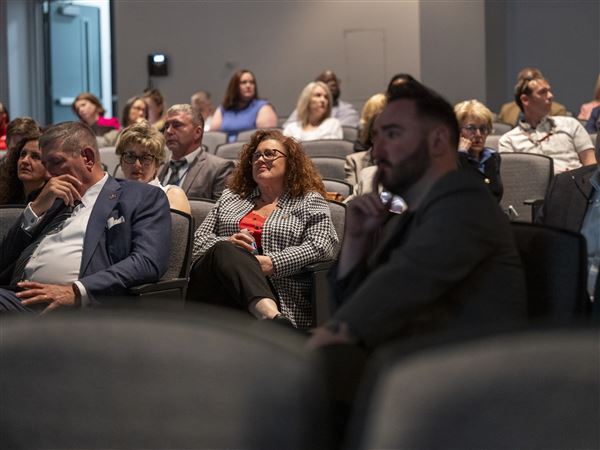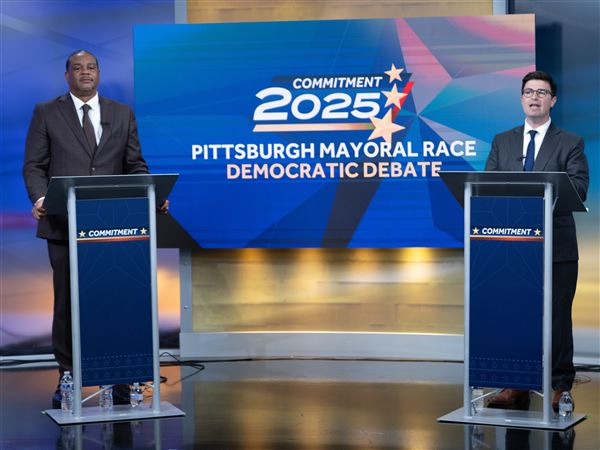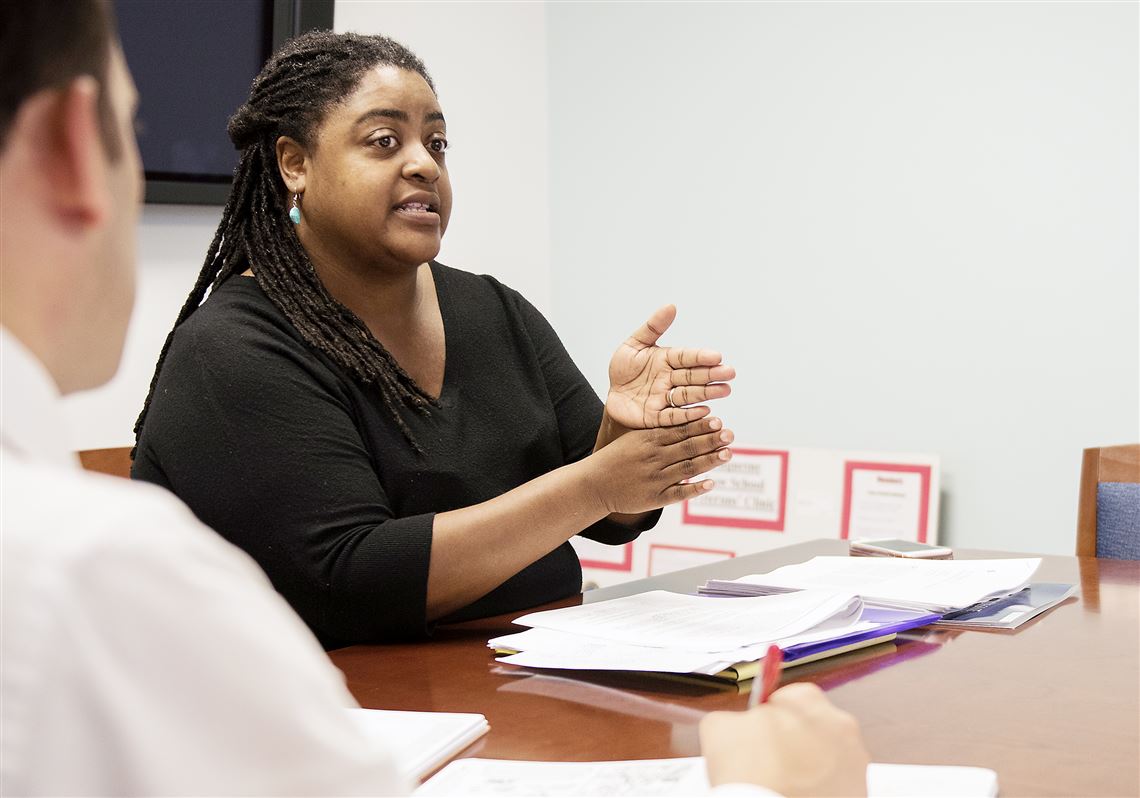Candace King-Williams found her family at the center of a complex school discipline system when her daughter, who said she was being bullied by a group of girls, attacked one last fall.
Uncertain how to proceed, the single mother had no legal representation until a colleague at Duquesne University suggested a law professor there, who connected her with another specializing in such cases, Tiffany Sizemore-Thompson.
The school district wanted to expel the high school junior, her mother said, but Ms. Sizemore-Thompson argued for an alternative school placement — and won.
“Tiffany knows the system inside out, upside down,” said Ms. King-Williams, who lived in Bellevue, but now resides in the Hill District. “I don’t have that much help. … Had she not been involved with this process, I don’t know what would have happened with my daughter.”
Years of working in the Juvenile Division of the Allegheny County public defender’s office inspired Ms. Sizemore-Thompson to create a pair of law clinics at Duquesne, where she is now an assistant clinical professor. The second, focusing on education law, began last week.
Ms. Sizemore-Thompson will serve as the supervising attorney and professor, overseeing eight law students who will maintain a caseload of clients. Doctoral psychology students will work with schools to develop plans for returning students.
“The school-to-prison pipeline is alive and well in Allegheny County,” where school discipline issues are “critical,” she said. “The clinic seeks to stop the problem by focusing on representing students and parents in school discipline cases.”
It’s one of several efforts underway locally to provide more support to families and lay the groundwork for future lawyers interested in pursuing what some legal experts say is an underrepresented field.
At the University of Pittsburgh, visiting law professor Chaz Arnett will pilot an education law practicum this year focused on policy and advocacy, in partnership with the Education Law Center, a legal advocacy organization. And just last year, he reintroduced an education law survey course at Pitt that had been on hiatus for about eight years.
In his previous role as a trial attorney in the Juvenile Division of Maryland’s public defender’s office, Mr. Arnett oversaw practicing law students and represented children at all levels of the delinquency process.
“I’m sort of seeing it as my mission to build the next generation of lawyers interested in youth advocacy law,” he said.
These offerings come as more K-12 educators here apply the concept of “restorative justice,” a disciplinary approach that aims to reduce suspensions by promoting that students and teachers talk out their problems in school. The revised Pittsburgh Public Schools’ Code of Student Conduct places a greater emphasis on this practice, and instead of two student misconduct levels, there are now three, creating a separate one for the most serious infractions.
“Our goal is really to work to reduce the number of students that are pushed out of public schools,” said Cheryl Kleiman, staff attorney with the Education Law Center’s Western Pennsylvania office Downtown. “Any period of time removed from the classroom leads to higher rates of incarceration” and doesn’t improve behavior.
The school discipline process is one unknown to many until they have to go through it.
Say a student gets into a fight. What generally comes next is an informal hearing, a meeting in which the student and parent have a right to explain what happened to the principal, who makes the decision, Ms. Sizemore-Thompson said.
A student facing expulsion has the right to a formal hearing with a hearing officer, and it functions more like a court proceeding, with elements such as cross-examination. The parents are notified that they can bring an attorney.
Ms. Sizemore-Thompson said she would like her law students to be involved even earlier than the formal hearing.
“We would like to get in to make some more strenuous arguments to stop the suspensions,” she said.
Although resources are geared toward lawyers who might be asked to do a school discipline case, Ms. Kleiman said there isn’t an abundance of practitioners with that education knowledge.
“Getting a law student to understand the issues around public education and help them be excited about this work would be a wonderful outcome,” she said.
Molly Born: mborn@post-gazette.com, 412-263-1944 or on Twitter @molly_born.
First Published: August 29, 2016, 4:00 a.m.

















